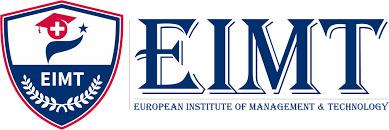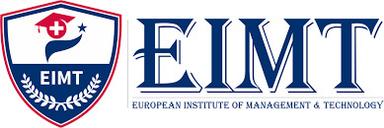Programme Key Points
Core Computing Mastery: Establish a robust foundation in essential computer science principles while acquiring hands-on skills in AI, data science, cybersecurity, software engineering, and beyond.
Research-Infused, Industry-Aligned: Seamlessly connect academic rigour with real-world applicability—transform theoretical knowledge into practical projects while honing critical analytical skills.
Cross-Disciplinary Tech Proficiency: Thrive in varied domains, from machine learning and system architecture to cybersecurity, Human-Computer Interaction, and advanced algorithm development.
Future-Ready Innovation: Create scalable, ethical technological solutions leveraging cutting-edge tools like AI, data analytics, cybersecurity, cloud computing, and intelligent automation.
Expert Faculty: The programme is taught by a distinguished faculty of industry leaders and academic experts, each with over 15 years of experience in global organisations.
Programme Highlights
Industry-Aligned Curriculum
Dive into a comprehensive curriculum designed to meet the demands of the modern tech industry. Gain expertise in core disciplines such as software engineering, database management, and algorithms, while exploring emerging fields like artificial intelligence, machine learning, cybersecurity, and big data analytics.
Practical Research Emphasis
Engage in applied research that addresses real-world challenges in computer science. Work on authentic scenarios to develop critical thinking, problem-solving, and innovative mindsets. Through research-driven projects, learn to design and implement solutions that are both practical and forward-thinking, preparing you to tackle complex issues in the tech landscape.
Flexible Online Study & Expert Mentors
The programme is delivered through a state-of-the-art online platform, ensuring accessibility and convenience. Learn from a distinguished faculty of industry-leading professionals and academics who bring real-world insights and mentorship to guide your academic and career journey.
Programme Overview
The Master of Computer Science at EIMT is an expertly crafted 18-month graduate programme tailored for professionals with a foundational understanding of technology or computing. Designed to support career transitions, advancement in current roles, or deeper expertise in computer science, this programme equips you with advanced skills and knowledge to thrive in today’s dynamic tech industry.
PROGRAMME SPECIFICS
• Title Of The Qualification/Award: Master of Computer Science (MCS)
• Modules: 11
• ECTS: 90
• Programme Duration: 18 Months
• Total Learning Hours: 2250 Hours
The curriculum spans critical computer science disciplines. You will explore software engineering, mastering the creation of reliable and efficient software applications. Database systems will teach you to effectively manage and organise large datasets. The programme also delves into artificial intelligence and machine learning, enabling you to build intelligent systems capable of learning and decision-making based on data.
Additionally, you will gain expertise in cloud computing and distributed systems, essential for modern applications operating across multiple servers or over the internet. A strong foundation in data structures and algorithms will empower you to solve complex computational problems with speed and efficiency. Furthermore, human-computer interaction will equip you to design user-friendly software that meets real-world user needs.
What sets this programme apart is its balanced approach to theory and practice. Each course integrates academic learning with hands-on activities, including coding assignments, simulations, and lab exercises. This ensures you not only grasp theoretical concepts but also apply them effectively to real-world challenges, preparing you for success in the professional tech landscape.
After finishing this programme, you will be able to:
- • Demonstrates advanced understanding of AI and Data Science, applying concepts to complex, real-world challenges.
- • Combines theoretical and practical knowledge to create intelligent, data-driven technological solutions.
- • Applies machine learning and analytics tools to develop and manage next-generation digital systems.
- • Optimises AI models and data frameworks through critical thinking and innovation.
- • Utilises automation, cloud computing, and ethical AI to design scalable, future-ready solutions.
- • Applies cybersecurity tools and protocols to ensure robust system security and data protection.
- • Designs, implements, and audits secure network and software infrastructures, mitigating emerging threats.
- • Integrates cybersecurity considerations into all technological solutions, ensuring compliance, resilience, and privacy.
- • Exhibits leadership, problem-solving, and collaboration skills essential for success in the global tech landscape.

Why Choose this Programme?
Most viewed and all-time top-selling services
Syllabus
Modules Covered

Module 1: Software programming principles and practices in Java (ECTS 6)
Module 2: Database & SQL Programming (ECTS 6)
Module 3: Computer Architecture (ECTS 6)
Module 4: Computer Networks (ECTS 6)
Module 5: Security Engineering (ECTS 6)
Module 6: Elective 1 (ECTS 6)
Module 7: Elective 2 (ECTS 6)
Module 8: Elective 3 (ECTS 6)
Module 9: Elective 4 (ECTS 6)
Module 10: Elective 5 (ECTS 6)
Module 11: Capstone Project (ECTS 30)
Elective (Specialisation: AI and Data Science)

Module 6: Data Science Foundations (ECTS 6)
Module 7: Data Mining, Machine Learning and Artificial Intelligence (ECTS 6)
Module 8: Data Analysis and Visualisation (ECTS 6)
Module 9: Probability and Statistics for Data Analysis (ECTS 6)
Module 10: Advanced Computing Research Methods (ECTS 6)
Elective (Specialisation: Cybersecurity)

Module 6: Internet of things and Cryptography (ECTS 6)
Module 7: Networking and Kali Linux (ECTS 6)
Module 8: Engineering of Hacking (ECTS 6)
Module 9: Forensic Computing (ECTS 6)
Module 10: Application and Device Audit (ECTS 6)
Courses
Master of Computer Science
Tuition Fees
CHF 12,000
Country
Switzerland
Mode of Teaching
Online
Duration
18 Months
Eligibility
Academic Requirements:
- Applicants must hold a recognised bachelor’s degree in computer science, information technology, or an equivalent EQF Level 6 qualification in management, business or any relevant area with a minimum score of 55% (GPA 2.0 on a 4.0 scale) or higher.
English Language Proficiency:
Applicants must demonstrate language proficiency by providing one of the following minimum test scores:
- IELTS: 6.5 overall
- TOEFL: iBT 58+, PBT 490+, or CBT 167+
- TOEIC: 555+ overall
- PTE: 50+ overall
- Duolingo: 90+ overall
- English proficiency can be proven through an academic degree taught and assessed entirely in English, or with other substantial evidence of proficiency.
English Proficiency Waivers:
The English test requirement is waived for candidates who:
- Are native English speakers, OR
- Have completed schooling (High School Diploma) or higher education in English, OR
- Possess 2 years of professional experience in an organisation where English is the primary language of communication.
Fundamental Digital Competency:
Applicants should possess basic digital literacy, including familiarity with computers, the internet, and standard software applications.
Career Opportunities
A Community of 1000+ And Counting
EAE Graduates Work With
Blogs and Articles
- Feb 2, 2026
- Technology
How a Doctorate in Computer Science Can Lead to AI Leadership Positions
- A Doctorate in Computer Science builds deep technical expertise, research skills, and strategic insight, helping professionals transition into high-level AI leadership roles.


- Jan 27, 2026
- Technology

- Jan 14, 2026
- Hospitality

- Jan 12, 2026
- Hospitality









.jpg&w=3840&q=75)




